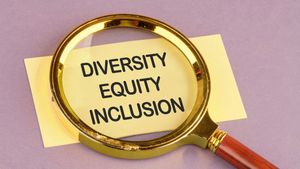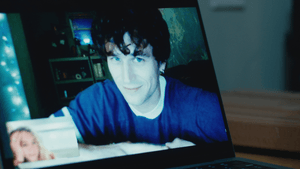Treatment GuideJust DiagnosedSex & DatingAfrican AmericanStigmaAsk the HIV DocPrEP En EspañolNewsVoicesPrint IssueVideoOut 100
CONTACTCAREER OPPORTUNITIESADVERTISE WITH USPRIVACY POLICYPRIVACY PREFERENCESTERMS OF USELEGAL NOTICE
© 2026 Pride Publishing Inc.
All Rights reserved
All Rights reserved
By continuing to use our site, you agree to our Privacy Policy and Terms of Use.
I have been preoccupied with the topic of shame lately. As I have reflected more deeply on my life's experiences and felt more keenly the presence of shame, I am noticing with ever-increasing clarity its toxic effects. In the past such recognition would have fueled an even greater sense of shame, in effect being ashamed of having shame. Difficult or painful emotions tend to have a circular effect with me -- and with others. I see it every day as people get more depressed over being depressed, grow more anxious about being anxious. At its core shame involves hiding from the truth of who we are, as if we are protecting the world from what we perceive as our glaring defects and protecting our vulnerability against further judgment. Throughout my life shame has paralyzed me, inhibiting my ability to reach out for help or be honest about my feelings. Cowering in abject fear of judgment, I erected a false self to make life as safe as I possibly could. In my case this most clearly was the result of feeling I had been judged harshly for being gay. To protect myself I became a very good and polite boy, as if garnering the admiration and affection of others would protect me from their judgment. In essence, I convinced myself that by behaving I would be loved. I recall that even as an adolescent -- surrounded by friends whom I loved and who loved me -- I felt a deep suspicion that if they knew the real me, they would withdraw their love and support and abandon me. I was held hostage by this dynamic, as the shame made it difficult to contemplate another solution. One can easily see the problems with this maneuver. In the moment, it works to create a sense of safety, guarding against the annihilation of abandonment. Over time, however, its corrosive effects change that sanctuary into a prison. Over the past few months I have experienced a number of serious consequences -- financial, personal, professional -- related to the prison of shame. The extreme difficulty of being honest about my struggles prevented me from dealing honestly with my situations. Hence, I hid from the problems themselves, presenting a self that was more organized, competent, and professional than was really the case. The problem with the false self is that the illusion it creates prevents a person from taking genuine action in areas that matter. As a friend of mine said, it's impossible to change your life if you don't know where you are. The antidote to shame is having the willingness to be seen and accepted as one is, the willingness to assert one's feelings in the presence of fear. Courage. And this needs to be said: Change is difficult. If one is most familiar with hiding, then the notion of not hiding anymore is very scary indeed. Overcoming these fears and presenting one's true self -- whether that's linked with one's HIV status, sexual orientation, substance abuse, sexual abuse, or mental illness -- is vital, and it's one of the reasons I so strongly advocate peer support networks. These groups help break the horrific isolation that typically accompanies shame and allow us to develop compassion for ourselves. The self-acceptance that comes with this experience is truly liberating -- and carries the potential for healing rarely found elsewhere. My heartfelt wish for those of you identifying with the dynamics of shame is that you each can find the courage and willingness to locate and join a support group with which you identify in order to help break your own cycles of shame. Fransen is a licensed clinical social worker who is in private therapy practice in Chicago. He welcomes feedback at stillpoint4003@yahoo.com.
From our Sponsors
Most Popular
“So much life to live”: Eric Nieves on thriving with HIV
September 03 2025 11:37 AM
The Talk: Beyond the exam room
August 13 2025 3:15 PM
Messenger RNA could be the key to an HIV vaccine — but government cuts pose a threat
August 20 2025 8:02 AM
It’s National PrEP Day! Learn the latest about HIV prevention
October 10 2025 9:00 AM
Amazing People of 2025: Javier Muñoz
October 17 2025 7:35 PM
The lab coat just got queer
August 21 2025 10:00 AM
The Talk: Owning your voice
August 25 2025 8:16 PM
“I am the steward of my ship”: John Gibson rewrites his HIV narrative
September 16 2025 2:56 PM
Plus: Featured Video
Latest Stories
HIV-positive men stage 'Kiss-In' protest at U.S.-Mexico border
December 01 2025 12:56 PM
What the AIDS crisis stole from Black gay men
December 01 2025 6:00 AM
The Talk: Navigating your treatment
August 01 2025 6:02 PM
The Talk: Starting the conversation
July 25 2025 4:47 PM
Thanks to U=U, HIV-positive people can live long, happy, healthy lives
July 25 2025 2:37 PM
How the Black AIDS Institute continues to fill in the gaps
July 25 2025 1:06 PM
“I felt like a butterfly”: Niko Flowers on reclaiming life with HIV
July 23 2025 12:22 PM
Dancer. Healer. Survivor. DéShaun Armbrister is all of the above
July 02 2025 8:23 PM
BREAKING: Supreme Court rules to save free access to preventive care, including PrEP
June 27 2025 10:32 AM
1985: the year the AIDS crisis finally broke through the silence
June 26 2025 11:24 AM
VIDEO: A man living with HIV discusses his journey to fatherhood
June 10 2025 4:58 PM
Trump admin guts $258 million in funding for HIV vaccine research
June 03 2025 3:47 PM
Grindr is reminding us why jockstraps are so sexy and iconic
May 02 2025 5:36 PM
HRC holds 'die-in' to protest Trump health care cuts
April 28 2025 2:11 PM
Two right-wing Supreme Court justices signal they may uphold access to PrEP and more
April 21 2025 4:10 PM
500,000 Children at Risk: PEPFAR Funding Crisis
April 08 2025 3:51 PM
Trending stories
Recommended Stories for You







































































